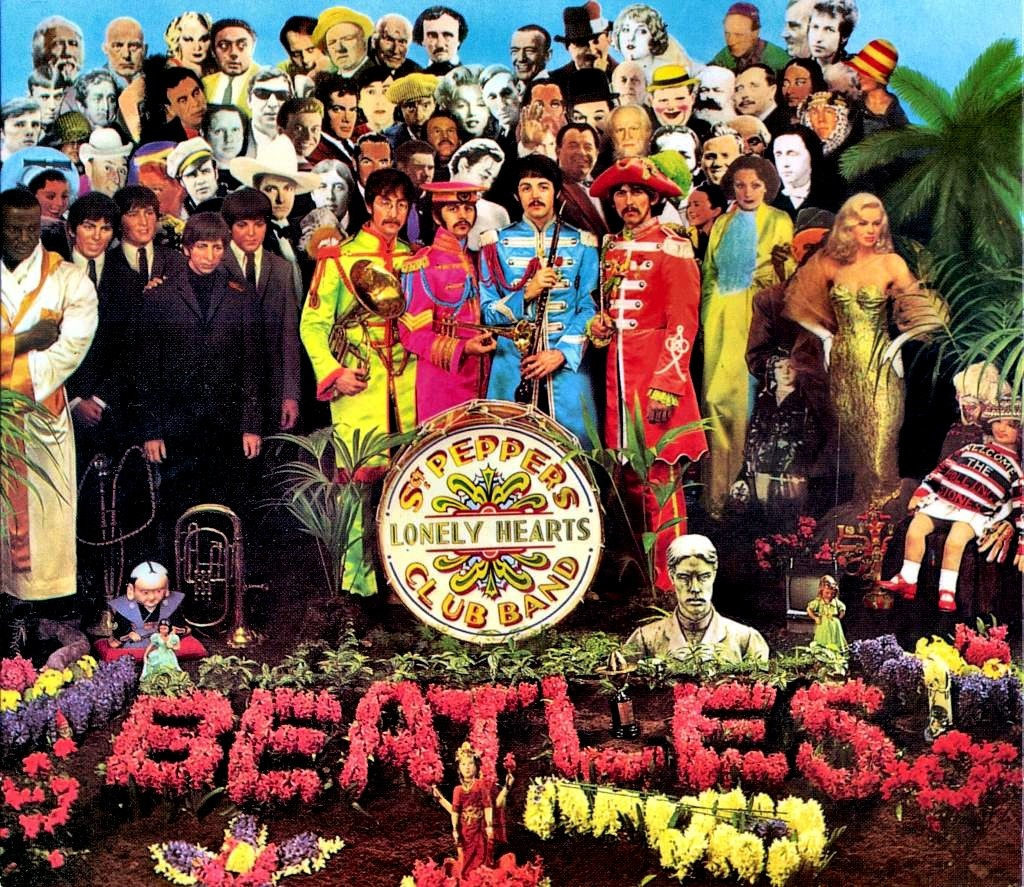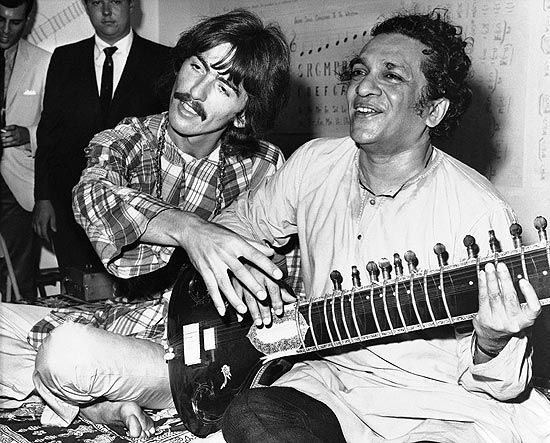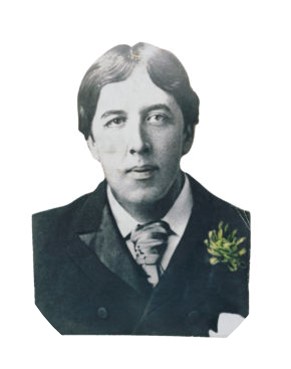
Last week, I was conducting one-on-one interviews for a group of stations we work with. A 32 year-old guy named Christian (pictured below) walked into the conference room sporting a Jimi Hendrix concert T-shirt. As our discussion progressed, he told me how much he loves vintage rock, driven by a nagging feeling he missed out on something special because he was too young to experience the ’60s music phenomenon. In the qualitative research I’ve done, combined with the ratings and perceptual studies I’ve seen, there are a lot of young guys like him all over the country.
The truth is, he actually did miss a lot. As someone old enough to have enjoyed that music in “real time,” the memories sometimes obscure and even embellish the reality of what was really going on back then. Part of the story was the many groundbreaking historic moments 50 years ago. Race riots, the Vietnam war, and other big events dominated newspaper headlines.
But in the world of music in 1967, the major buzz was the release of another Beatles album. Back then, these events were reminiscent of the debut of an Apple iPhone, complete with long lines of fans who had to have the record on the very first day it went on sale. But the Beatles’ iconic “Sgt. Pepper’s Lonely Hearts Club Band” album, released a half century ago, became an even bigger thing. Today, there’s a lot of hoopla surrounding the golden anniversary of this record. And for good reason.
So over the long holiday weekend, I took a moment to stop and think about its import and impact – what it meant to music, society, culture, and radio back then – and what it means to us today.
When “Sgt. Pepper’s” came out, the Beatles were already the biggest thing going, selling millions of albums and dominating radio airplay. America loved the Fab Four, so when they “broke format” and released “Sgt. Pepper’s,” it was more than just a musical fork in the road. It became a cultural turning point.
The Beatles disrupted themselves. And they did it at a time when they were the most popular band on the planet. “Revolver” was released in  1966, one year earlier, and it was a brilliant piece of work.
1966, one year earlier, and it was a brilliant piece of work.
But “Sgt. Pepper’s” blew up the band’s consistent, familiar repertoire, forcing Beatle fans to sit up and take notice. Gone were the simple melodies, the love ballads, and the 2:30 radio-friendly songs. Instead, this album broke the mold, and paved the way for rock bands to redefine and reinvent themselves. Around that time, George Harrison was quoted by biographer Hunter Davies:
“I don’t personally enjoy being a Beatle anymore.”
George was an important force on the album, singlehandedly introducing new sounds. In the grooves, the Beatles reinvented themselves with “Sgt. Pepper’s” – not once, but several times. The debut of the sitar on “Within You Without You” was one of many firsts brought to the band by George, inspired by Ravi Shankar.
Interestingly, some of the Beatles’ core fans were appalled at the album. It was too weird and psychedelic. It wasn’t lovable or cute. Songs like “A Day In The Life” were textured, cacophonous, different, and not Top 40 AM radio-friendly. They stirred up conversation as fans debated the blurry stories buried deep within the vinyl.
And it wasn’t just the music – it was the look, the packaging, and the album art. This was an LP you sat down with, you stared at, you thought about, and you discussed. It was carefully sequenced, songs sequed into each other, it was themed out, and it told stories. Up to that point, most albums were exercises in stringing together a bunch of songs around a hit single or two – enough music to fill two sides of a 33⅓ record album. “Sgt. Pepper’s” was a concept album, with themes that stretched the boundaries of rock as we knew it.
 Just gazing at the montage of people on the cover scene became its own conversation. Who were all those faces, what did they symbolize, and what compelled the Beatles to choose them? Of course, it was not possible to Google the album or discuss it on Facebook, so you had to work it out for yourself. While obvious faces like W.C. Fields, Mae West, Stan Laurel, and Bob Dylan jumped out, identifying Oscar Wilde (pictured left), Huntz Hall, Lenny Bruce, and James Joyce was considerably more challenging.
Just gazing at the montage of people on the cover scene became its own conversation. Who were all those faces, what did they symbolize, and what compelled the Beatles to choose them? Of course, it was not possible to Google the album or discuss it on Facebook, so you had to work it out for yourself. While obvious faces like W.C. Fields, Mae West, Stan Laurel, and Bob Dylan jumped out, identifying Oscar Wilde (pictured left), Huntz Hall, Lenny Bruce, and James Joyce was considerably more challenging.
BBC Music has created a wonderful series of videos, going into their vast archives and breaking down each of the faces on the album cover with short videos. That would have come in handy 50 years ago.
If there was such a thing as going viral in 1967, “Sgt. Pepper’s” achieved it. While many music critics believe other Beatle albums were better musically (“Abbey Road” is often mentioned), “Sgt. Pepper’s” ought to win the award for most groundbreaking album – ever.
Oddly enough, the Grammys got it right. “Sgt. Pepper’s” won album of the year in ’68, and designers Jann Haworth and Peter Blake took top honors for best album cover.
“Sgt. Pepper’s” was a sure sign the Beatles burned out on being the Beatles, long before the rest of us did. And unlike most bands that would have been content to continue releasing hit albums regurgitating their patented sound, “Sgt. Pepper’s” was a message to their millions of fans:
“We’re moving over here now and taking a very different journey. You’re welcome to join us. But if not, you have our wonderful older albums to enjoy.”
The travelers who made the episodic trek often ended up becoming Classic Rock fans, while those who stayed behind, preferring the more melodious sound, innocence, and simplicity of “She Loves You” and “Eight Days A Week” tended to gravitate to Oldies stations. It was like after years of mainstream comedies, the Beatles released a foreign film – without the subtitles. Not everyone “got it.”
“Sgt. Pepper’s” was the gateway drug (in some cases, quite literally) to Pink Floyd, Yes, and rock that went well beyond hit singles and mainstream airplay at powerhouses like KHJ, WLS, and CKLW.
But that’s why the Beatles were…the Beatles. Always leading, never following, they took us on a trip that has continued to this day. The seeds of FM radio’s rise were firmly planted with that album, fueling a group of upstart revolutionary stations on the chance to be different and even counter-culture.
The Beatles albums that followed – “Magical Mystery Tour,” “The Beatles” (White Album), “Yellow Submarine,” “Abbey Road,” and “Let It Be” – all continued the journey, moving further away from being fab, and scoping out new musical and cultural turf.
It is impossible to imagine another album (or video or film) that could possibly have the sweeping impact “Sgt. Pepper’s” did. And that’s why  this breakthrough album is worth celebrating, whether you grew up with the Beatles or you discovered this masterwork at some point later on like many thirtysomethings have done.
this breakthrough album is worth celebrating, whether you grew up with the Beatles or you discovered this masterwork at some point later on like many thirtysomethings have done.
For me personally, the album signaled a music transition, opening me up to bands and albums that would become a catalyst for my own career in radio, and later, the development of the Classic Rock format.
For young guys like Christian, it is a point in time he’ll never personally know, but he can still enjoy and appreciate through classic recordings like “Sgt. Pepper’s.”
Celebrating the 50th anniversary of “Sgt. Pepper’s Lonely Hearts Club Band” brings a lytic from the title track to mind:
“It’s certainly a thrill.”
P.S. Yes, Christian is sporting “the old English D” – the symbol of Detroit. Yet, these intervews took place more than 1,000 miles away, and Christian told me he never lived in the Motor City. He’s just a fan of the Red Wings and Tigers. Go figure.
- Radio Listeners Don’t Get Tired Of Music, Only PDs And Music Directors Do - December 26, 2024
- It’s The Most Wonderful Time Of The Year - December 25, 2024
- Is Public Radio A Victim Of Its Own Org Chart – Part 2 - December 24, 2024




This post is so insightful Fred! They all are. But today you hit on a subject I’ve wondered about for much of my life: Why the change in style with the Beatles? I would have been one of those who split off from the rest, wanting more of the bubble gum tunes. But that’s because I’ve always used music as means to lift my spirit, rather than contemplate deeper realities.
What struck me today is you were, single-handedly, able to describe that phenomenon in such a clear a way, I just had an ah-ha moment! That doesn’t happen very often because I enjoy figuring things out like that and usually can on my own. So thanks for such an insightful post today. You really are a spectacular writer!!
Lisa, thanks for the kind words. The “Sgt. Pepper’s” era was challenging, and it was fascinating to be part of a phenomena where music was the catalyst for such much conversation. Appreciate you reading our blog.
Hire Christian ! 😉
He was an interesting dude!
Makes me pause to wonder…..What’s the next group to break the mold. We haven’t had a album that had a WOW Factor in awhile. And what band is it gonna be ? Foo Fighters? Volbeat? Or maybe its the new kids
Gretta Van Fleet. Something’s coming ….and hope it has that WOW Factor .
The world has been waiting a long time for that moment, Scott. I’m thinking it’s simply not possible to have a Beatles-level impact, but would love to be proven wrong.
Interesting and well written, Fred. And a reminder that risks, even if only of the calculated variety, are often worth taking. Including in our wonderful radio industry.
Bill, there are some wonderful analogies to the radio business. Thanks for the comment and the POV.
I just watched a couple of mind blowing interviews on YouTube with the engineers who helped create the album. I now have a totally different picture of how it was created. Without the engineers translating the Beatles ideas into sound it wouldn’t have happened.
No doubt about it – a lot was going on in that studio. Thanks, Dan.
Thanks, Paul for the conceptualization and most of content on this album. Thanks, John for helping to deliver Paul’s shared vision. Thanks, Ringo for truly creative percussion throughout. Thanks, George for the perfect song. Thanks to the creative artists, producers, arrangers and musicians involved in this work some 50 years ago. Thanks, advances in technology for providing Giles Martin and team the tools needed to noticeably brighten the previously unnoticed stereo sounds on newly minted master work.
50 years later, and there’s a lot to appreciate. Can’t wait to hear the remix. Thanks for the comment.
Having been a Beatles fan since I first picked up their records in 1964-and getting to host Beatles Radio in San Diego for 14 years I learned a lot about the music, the people and what made them click. The Beatles quickly reached the point where no one questioned their ability. People knew that whatever they were doing they’d be successful. No formula, no “format” -just a lot of “what if?” and “how can I?”. Is radio at the point where we should find those people asking those questions, find a George Martin and get it done? This could be the fresh start needed to kick the medium in the butt and get moving in a positive direction. Remember-they started as a basic band, began experimenting-and then went back to their roots with Abbey Road. Constantly reinventing…not for the money but for the art!! After all these years there’s still a message here.
Dave, this sums it up nicely. Great perspective and much appreciated.
It’s a weak parallel, but one I’ll bring up anyway, Fred.
I had a similar reaction in 1973 when Elton John released the “Goodbye Yellow Brick Road” album, which went off in a lot of directions different from his previous albums.
Some people were dismayed at that album, some even thinking Elton was being overindulgent by making this “experiment” a two-record set, but it went on to be the #1 album of 1973, yielding three hit singles (including his second #1) and one song which he repurposed 24 years later as a tribute to the late Princess Diana.
It also set off a string of top-ten (with only one exception) singles over the following three years, which included another five #1s … after which the top spot eluded him until the “Candle In The Wind” remake.
I think we’re overdue for another “shaking up our complacency” album.
I remember the Elton situation well – yup, another “fork,” albeit not as significant (IMO) as SPLHCB. But it also suggests that in the ’60s and ’70s, there were the capabilities for a true “moment” in music history. I’m not sure (as I wrote in the post) that given the way music is produced and distributed, it could happen on this type of scale again. So we should enjoy the ones we’ve experienced. Thanks for the comment.
Fred:
Forwarded your Sgt. Peppers post to a good, non-radio friend – he’s a writer. He loved it and it sparked a note – excerpt below. Thought you’d like it
Gary Weiss
Very interesting, Gary.
In June, 1967 I was about your son’s age… still “finding myself” at College …
I was directed me to a very comfortable leather recliner and handed a set of Koss headphones. I had never, ever listened to music through headphones before. When he dropped the needle on Sergeant Pepper, I was transported to another world. The circuitry of my brain drank in every cough and whisper coming at me from left and right as a pit orchestra began warming up for what sounded like a concert of some sort? Then, Paul McCartney’s voice exploded with “It was 20 years ago today Sergeant Pepper taught the band to play. They’ve been going in and out of style, but they’re guaranteed to raise a smile.” So this was what stereo was. It was magical! As if I was in the middle of it all.
Of course, Billman knew what I was experiencing, and just left me in the room and went out to grab dinner. I was listening to crowing rooster on “Good Morning, Good Morning” when he came back to the room, but I was oblivious. I didn’t open my eyes until the fading strains of John Lennon’s masterful “A Day in the Life.” I felt like I had just had a brain massage.
Billman offered me a beer from his very cool compact fridge. We drank the brew and discussed in great detail what we both agreed was the best rock-and-roll music we had ever heard, ever.
Gary, thanks for sharing this story with us. SPLHCB had a profound effect on many people who enjoyed it in “real time.” Much appreciated.